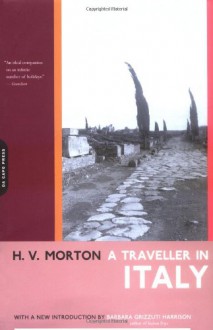
I've already posted about this book a couple of times - right away I'll say that this is an author I'd never quote or use as a historical reference. For multiple reasons that aren't terribly fascinating, so I'll hop right into the quotes that I wanted to share. Just be aware that you shouldn't trust any of Morton's quotes for accuracy.
I did like this quote (for bookish reasons) about Isabella d'Este, p 176 (section bolded for booklove, not in original):
"...her favorite son took as his mistress a beautiful young woman named Isabella Boschetti, who sought every opportunity to make trouble between mother and son.
Never can the Paradiso have been more precious than in those bitter days when she saw a spiteful young woman in the place she had graced for thirty years; but maybe she is not really to be pitied, for she must have known that trouble has a way of straightening itself out if you continue to collect books and to read them."
By Paradiso the author's referring to the rooms in the palace at Mantua that Isabella had decorated with paintings, etc. - doesn't seem to be what this area of the palace is typically called elsewhere. Or at least, not anymore. (That's a good example of the problems with reading an old travel book.)
In the section describing a tour of the Ducal Palace at Mantua, there was the following description of "the Apartments of the Dwarfs," p 171:
"In the heart of the palace, built to scale for inhabitants about three feet high, is a suite of rooms, or rather a miniature house, with midget staircases and even a tiny chapel in which I had to bend double."
Morton goes on into histories of various people (there were a lot of court dwarfs at the time) but makes no further mention of these rooms. Wikipedia isn't entirely helpful:
"Under his apartment in the Domus Nova, Vincenzo Gonzaga's son, Cardinal (later Duke) Ferdinand (1587–1626) had Viani design a series of ever-smaller rooms, long known as the Appartamento dei nani ("Dwarves' Apartments") and believed to have been built to house the celebrated court dwarves of Mantua. In 1979, however, Italian art historian Renato Berzaghi convincingly demonstrated that these tiny rooms are instead an exact reproduction of an ancient Roman original: the Scala Santa ("Holy Stairway") of St. John Lateran in Rome, and were intended for devotional purposes."
And there's a "citation needed" after that last sentence. Since most of the references to these apartments online are from sources earlier than 1979 - well, this is probably one of those I Will Spend Way Too Long Looking Up More Links adventures. And theoretically I did need to go do some laundry. (You can tell I'm sooo interested in laundry.)
Oh and some images of the palace are here (translated from Italian). Also here. Because of course I did have to get a glimpse of the place before I stopped googling.

 Log in with Facebook
Log in with Facebook 





